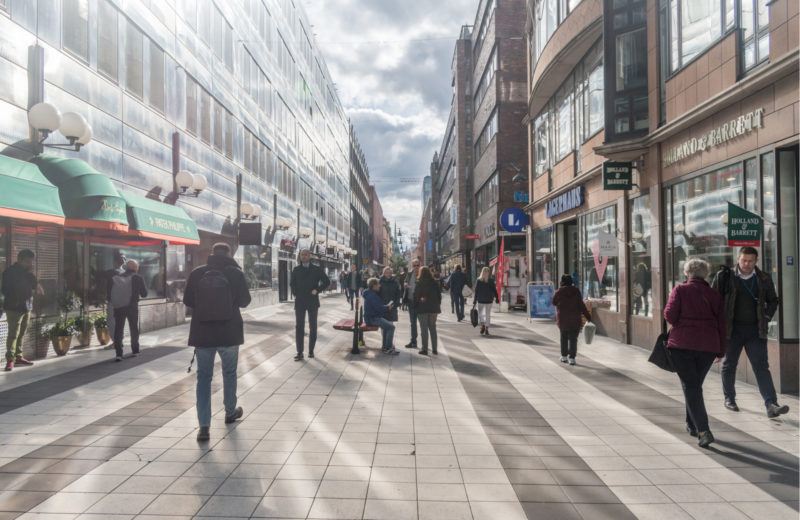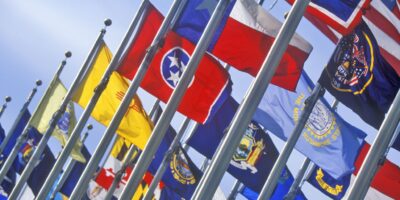What Sweden Has Done Right on Coronavirus

Until last week, only three European countries had still not closed their schools as a result of the coronavirus outbreak. Then followed Britain’s sharp reverse-course and lockdown policy where Prime Minister Boris Johnson finally gave in to pressure, leaving only Iceland and Sweden with a strongly diverging policy.
Iceland, a miniature country that could probably test its entire population in an afternoon should it wish to do so, is a scarcely populated country with fewer inhabitants than Staten Island such that its experience (2 deaths) might not have that much to tell the rest of the world.
On the other hand Sweden might, at about twice the size of Minnesota with roughly twice the number of the North Star State’s inhabitants.
Let me share some observations of the remarkable impact this crisis has had on Swedish society.
All here is definitely not well. Sweden, like most other countries, experiences its fair share of this uncontrolled pandemic. As of Monday night, over 4,000 cases had been confirmed, with the death toll approaching 150 and another 300 in intensive care. In per-capita terms, that’s about the same number of confirmed cases that the CDC reports for the U.S., but with over twice as many dead (I refer anyone interested in the weeds of the statistics to Our World in Data).
Swedish hospitals, businesses and households are facing the same ills everyone else is facing. What’s so striking is that this Scandinavian country seems to deal with its burden with more serenity and pragmatism than elsewhere – no panic or mania; just Work The Problem, People.
Instead of locking people in their homes or spreading fear and mania of various flavors, politicians – and more so scientists and civil servants in charge – have been surprisingly sensible. From officials at press conferences to scientists on prime-time TV, the prevailing notion has not been to shove official rules down a subversive population’s throat or boast about all the marvelous new things My Party did, but to provide the populace with enough information. To present the risks we are facing individually and collectively, and let normal people weigh their own risks and benefits, guided by common sense.
Contrary to the U.S., where President Trump and Governor Cuomo and countless other political figures compete for the attention of their constituents and populace and underlings, the Swedish experience has been one of decentralized decision-makers and arms-length officials calling the shots. So far, there has been very little politicking – very few special interests seem to have pushed their Very Special Interests during these critical times. Instead, politicians have by and large taken a step back and trusted that the responsible agencies – the epidemiologists, the universities, the civil servants, the doctors and nurses and hospital workers who put their lives on the line – have the know-how to do their job and the common sense to act properly.
Folkhälsomyndigheten, its closest American equivalent being the CDC, has simply worked the problem. Their chief epidemiologist, Anders Tegnell, has become a well-recognized face as he’s conducting interviews, press briefings, and organizing what is probably an impressive team for testing and monitoring the best-available data.
Swedish television, both publicly and privately run channels, have professors and WHO scientists every evening answering viewers’ questions, matter-of-factly explaining the latest news and admitting ignorance and uncertainty when appropriate. No presidents bragging or secretaries meddling with business they are wholly unqualified for. The prime minister did address the nation, something Swedish prime ministers almost never do, with a short non-partisan speech about getting through this together.
Dr. Emma Frans of Karolinska, Sweden’s world class medical school, has probably been on TV every night for two weeks straight. Agnes Wold, another media-famed professor the public has taken to heart, shares her advice in most major news outlets. In contrast to Trevor Noah of The Daily Show who now smugly runs his show isolated in his apartment, Skavlan, the most viewed talk show in the Nordics, runs on Friday evenings as usual – but in order to mitigate disease spread it no longer has a studio audience. When Wold visited last week, she didn’t just explain the scientific state of the virus to millions of viewers, but she practiced what she preached by demonstrably sitting about four meters away from her fellow talk show guests. Keep distance, don’t panic.
Many Q&A sessions with experts have included mundane doubts by concerned citizens about whether they should still hold family dinners, get married or visit their elders. In contrast to politicians’ one-size-fits-all restrictions for the number of people allowed to meet in public – Germany and Australia, 2 people; America, 10 people; Britain, no people – Swedish policy-makers and scientists made sure that the public understood the seriousness of the situation, but properly left such decisions to those best able to make them: people themselves.
American politicians of all persuasions have dabbled in things they know very little about: making promises their officials had to correct, botching the testing procedures by pulling regulatory rank to stop workable tests. While Swedish politicians have enacted fiscal and monetary stimulus packages that have been far from perfect (too little, too late, and too much of much too expensive debt packages), they have mostly done the country a service by not interfering.
The few times they have, they have done so prudently. A few weeks ago – lifetimes in this corona era – the government prohibited public events with more than 500 people, clearly communicated not as a fixed limit below which everything was safe, but as a guideline for safety. When that limit was reduced to 50 this weekend – much higher and much later than other countries – it was again presented as a rough limit, exempting private functions like corporate events and commercial activity, leaving final decisions in the hands of individuals.
When the government on the advice of epidemiologists finally closed universities and high schools – primary schools remain open – the relevant minister, pragmatically and matter-of-factly, answered journalists’ questions about what took them so long: the scientists say it probably doesn’t make a difference – and the youngsters are likely to hang about in coffee shops or at each other’s houses anyway, completely thwarting the purpose of the policy.
No political grandstanding, no “I’m the Big Boss,” no typically American swankiness. Just plain old pragmatic, Nordic calmness, letting the system do the work it was set up to do.
When instructed by the relevant public agency, the military built an emergency hospital outside of Stockholm. When hospitals called out for more personnel, regional politicians and the hospitals they are in charge of temporarily waived entry requirements for soon-to-be nurses and doctors, boosting the hospitals’ workforce. Where needed, hospitals have hired back recently-retired health care professionals. And behind the scenes, thousands upon thousands of other health care workers, food delivery services and civil servants do their job splendidly, partly because politicians and regulators are not interfering with their work. The government has made additional fiscal resources available and quickly covered sick pay for vast sways of the population – very easy when your government-debt-to-GDP ratio is 35% – but has not made an arduous public spectacle out of its legislative procedure as did American representatives.
The remarkable behavior and resilience of Swedish society is not limited to the public sector.
Like across the U.S., Swedish vodka companies started making hand sanitizers for distribution to hospitals and the general public. Scania, a major producer of trucks now unable to source components from China, have placed their logistics and distribution teams at the disposal of Getinge, a medtech company churning out ventilators for hospitals all over the world. Toilet paper factories, of which there are plenty in a major exporter of paper products like Sweden, have ensured that toilet paper shortages have been few and far between.
Indeed, Essity, the world’s second largest supplier of toilet paper has ramped up their production and added mask production to assist hospitals. In an example that well illustrates the Work The Problem mentality, Essity’s media relations manager, Henrik Sjöström, tweeted a picture of the company’s delivery trucks and mentioned the 3 million toilet paper rolls one factory churns out every day: “Here at the factory,” he wrote, “we call this special day ‘Tuesday.’” Just keep on working, guys.
Supermarkets (with only very occasional shortages of a handful of items) opened their doors an hour earlier exclusively for people above 70, such that they too can get groceries under comparatively safe circumstances. The demand for food delivery services has absolutely exploded. When the news broke a couple of days ago that Skansen, the iconic zoo outside of Stockholm, was close to bankruptcy for a lack of visitors, thousands of people bought annual passes and stuffed animals from their online shop – and even Venmo-ed their gifts. The manager had expected the government to come to its aid but, as usual, the private sector was there faster.
Like everywhere else, fewer people are seen on the streets of Sweden’s major cities – partly as a result of high school students taking online classes and companies (on public advice) asking their employees to work remotely. Concerned with the survival of their local pubs, cafés and small businesses, healthy Swedes without symptoms have ventured out to support their regulars, maintaining safe distance from others: balancing the need for infectious disease control with economic damage control.
To a certain extent different rules apply: an authoritarian Chinese state can clamp down on its citizens, going to extremes to quarantine infected people; a low-density country is by geography alone much less vulnerable to a disease that spreads by proximity. But Sweden isn’t an authoritarian state that treats its citizens as unruly children. Neither is it a remote and sparsely populated place: its population density is about two-thirds that of the U.S., mirroring America in that most of its population is concentrated in urban areas. Stockholm has the population density of Chicago or Miami and is only slightly less dense than Boston.
Not exactly holed up in their homes, Swedes are out and about, shopping and exercising almost as if nothing was going on – though not entirely so: there’s a new unwritten rule among runners and dog-walkers in my local park. Whenever we pass each other, we keep a good 3-meter distance; people literally walk in wide circles around strangers. Shaking hands is out of the question, and people are comfortably maintaining distance even between neighbors and acquaintances.
Nobody policed this behavior; no politician passed a law or issued a command for it to emerge. Sensible, well-informed, and respectful citizens did so. Nobody drew a line in supermarkets such that people could keep their distance – our natural sense of personal space did that, amplified by a commonly-felt urge to limit risks, but without shutting down commerce or society in the process.
There’s no mayhem, but plenty of fear and anxiety. We don’t know where this is going. This isn’t over, and this isn’t a joke.
The major difference between Sweden and many other places is the trust Swedes place in their institutions, the public agencies tasked specifically with events like this and private enterprise that produce and distribute the goods we need – the employers, factories, and brands that work to see a future beyond corona.
The response of Swedish society has been pretty remarkable: do your part. Help your loved ones and your local business owners. Trust those who know what they’re doing. Be mindful of others – and don’t sacrifice economic well-being at the altar of extreme disease control. Work The Problem, people.












